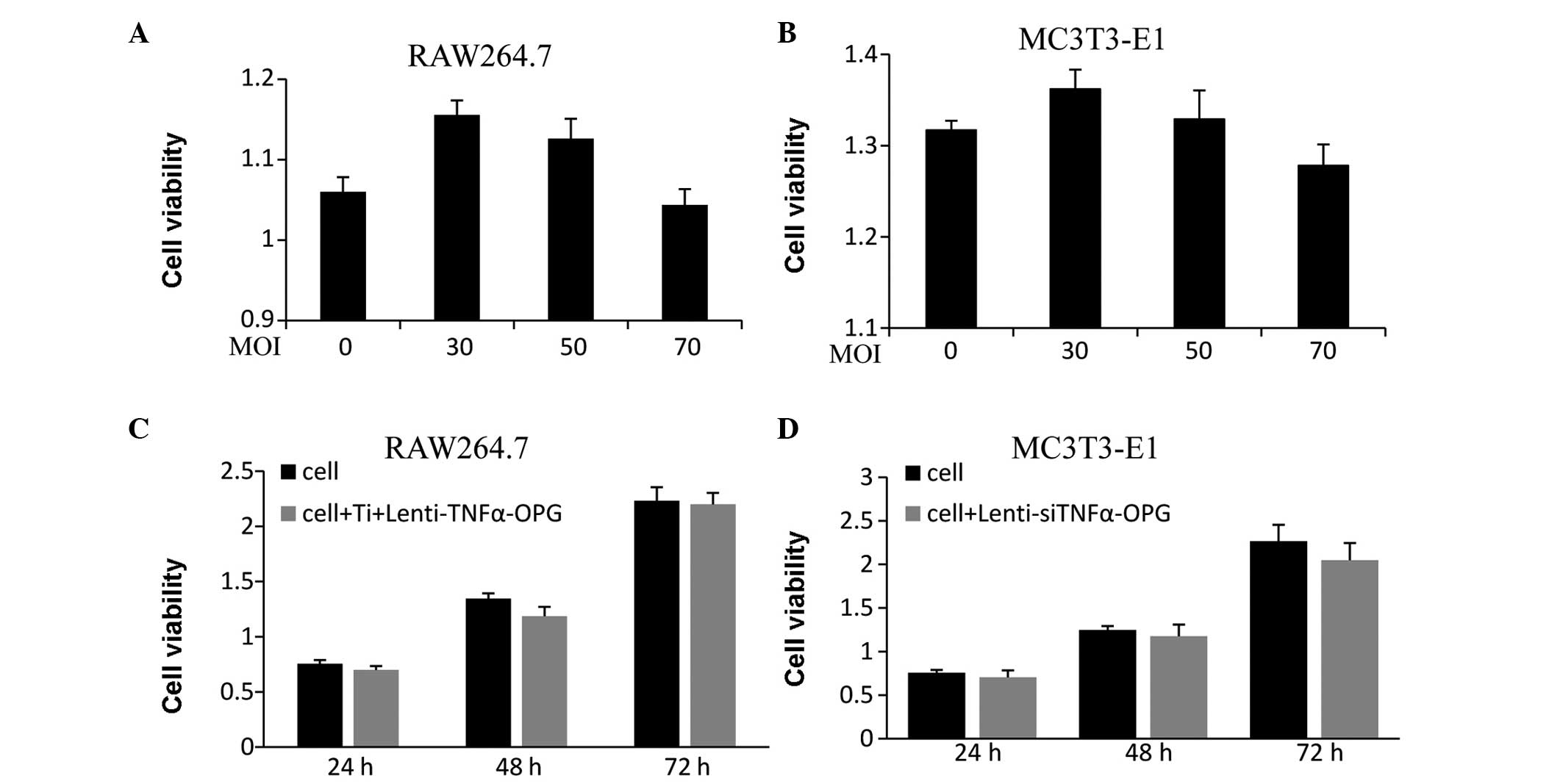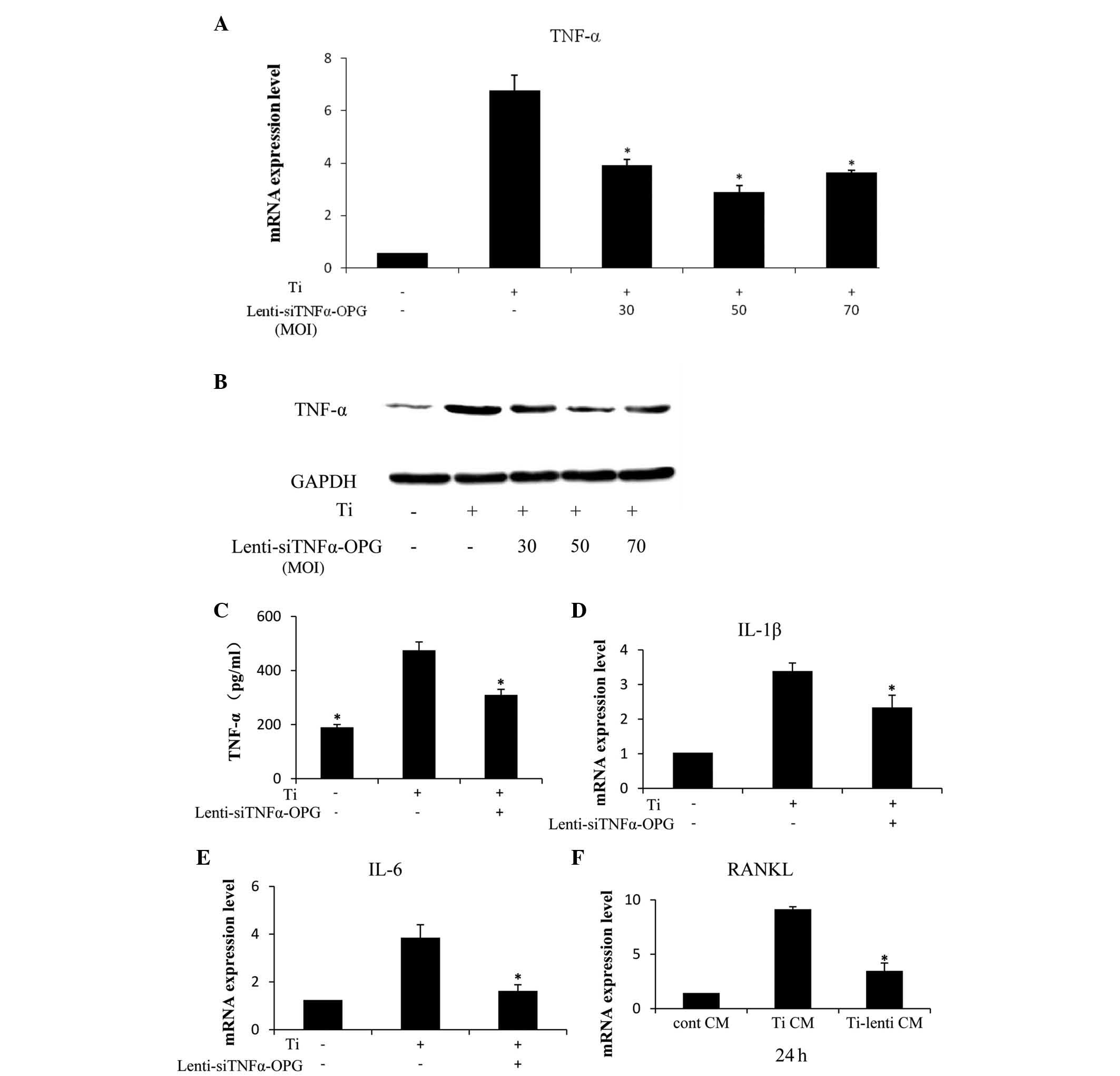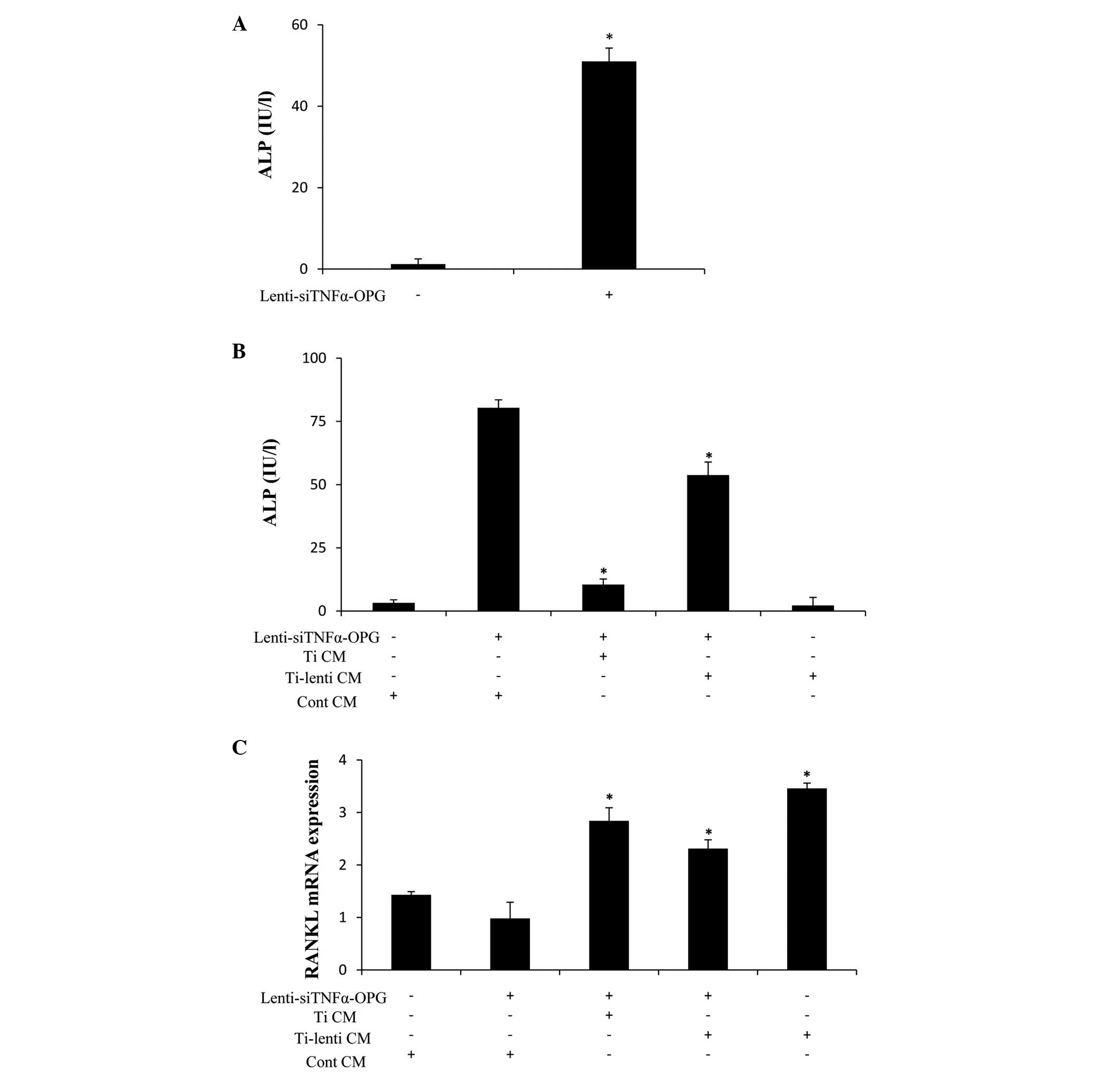|
1
|
Ollivere B, Wimhurst JA, Clark IM and
Donell ST: Current concepts in osteolysis. J Bone Joint Surg Br.
94:10–15. 2012. View Article : Google Scholar : PubMed/NCBI
|
|
2
|
Gallo J, Kamínek P, Tichá V, Riháková P
and Ditmar R: Particle disease. A comprehensive theory of
periprosthetic osteolysis: A review. Biomed Pap Med Fac Univ
Palacky Olomouc Czech Repub. 146:21–28. 2002. View Article : Google Scholar
|
|
3
|
Harris WH: Wear and periprosthetic
osteolysis: The problem. Clin Orthop Relat Res. 66–70. 2001.
View Article : Google Scholar
|
|
4
|
Schmalzried TP, Jasty M and Harris WH:
Periprosthetic bone loss in total hip arthroplasty. Polyethylene
wear debris and the concept of the effective joint space. J Bone
Joint Surg Am. 74:849–863. 1992.PubMed/NCBI
|
|
5
|
Agarwal S: Osteolysis-basic science,
incidence and diagnosis. Curr Orthopaed. 18:220–231. 2004.
View Article : Google Scholar
|
|
6
|
Purdue PE, Koulouvaris P, Nestor BJ and
Sculco TP: The central role of wear debris in periprosthetic
osteolysis. HSS J. 2:102–113. 2006. View Article : Google Scholar
|
|
7
|
Abu-Amer Y, Darwech I and Clohisy JC:
Aseptic loosening of total joint replacements: Mechanisms
underlying osteolysis and potential therapies. Arthritis Res Ther.
9(Suppl 1): S62007. View
Article : Google Scholar : PubMed/NCBI
|
|
8
|
Boyce BF and Xing L: Biology of RANK,
RANKL and osteoprotegerin. Arthritis Res Ther. 9(Suppl 1): S12007.
View Article : Google Scholar :
|
|
9
|
Takahashi N, Maeda K, Ishihara A, Uehara S
and Kobayashi Y: Regulatory mechanism of osteoclastogenesis by
RANKL and Wnt signals. Front Biosci (Landmark Ed). 16:21–30. 2011.
View Article : Google Scholar
|
|
10
|
Kwan Tat S, Padrines M, Théoleyre S,
Heymann D and Fortun Y: IL-6, RANKL, TNF-alpha/IL-1: Interrelations
in bone resorption pathophysiology. Cytokine Growth Factor Rev.
15:49–60. 2004. View Article : Google Scholar : PubMed/NCBI
|
|
11
|
Akisue T, Bauer TW, Farver CF and Mochida
Y: The effect of particle wear debris on NFkappaB activation and
pro-inflammatory cytokine release in differentiated THP-1 cells. J
Biomed Mater Res. 59:507–515. 2002. View
Article : Google Scholar : PubMed/NCBI
|
|
12
|
Greenfield EM and Bechtold J; Implant Wear
Symposium 2007 Biologic Work Group: What other biologic and
mechanical factors might contribute to osteolysis? J Am Acad Orthop
Sur. 16(Suppl): S56–S62. 2008.
|
|
13
|
Abbas S, Zhang YH, Clohisy JC and Abu-Amer
Y: Tumor necrosis factor-alpha inhibits pre-osteoblast
differentiation through its type-1 receptor. Cytokine. 22:33–41.
2003. View Article : Google Scholar : PubMed/NCBI
|
|
14
|
Xu J, Wu HF, Ang ES, Yip K, Woloszyn M,
Zheng MH and Tan RX: NF-kappaB modulators in osteolytic bone
diseases. Cytokine Growth Factor Rev. 20:7–17. 2009. View Article : Google Scholar
|
|
15
|
Yoshino T, Yamaguchi M, Shimizu M, Yamada
K and Kasai K: TNF-α aggravates the progression of
orthodontically-induced inflammatory root resorption in the
presence of RANKL. J Hard Tissue Biol. 23:155–162. 2014. View Article : Google Scholar
|
|
16
|
Froelich S, Tai A and Wang P: Lentiviral
vectors for immune cells targeting. Immunopharmacol Immunotoxicol.
32:208–218. 2010. View Article : Google Scholar : PubMed/NCBI
|
|
17
|
Rucci N, Rufo A, Alamanou M and Teti A:
Modeled microgravity stimulates osteoclastogenesis and bone
resorption by increasing osteoblast RANKL/OPG ratio. J Cell
Biochem. 100:464–473. 2007. View Article : Google Scholar
|
|
18
|
Philpott A, Weston-Simons JS,
Grammatopoulos G, Bejon P, Gill HS, McLardy-Smith P, Gundle R,
Murray DW and Pandit H: Predictive outcomes of revision total hip
replacement-A consecutive series of 1176 patients with a minimum
10-year follow-up. Maturitas. 77:185–190. 2014. View Article : Google Scholar
|
|
19
|
Goodman SB, Trindade M, Ma T, Genovese M
and Smith RL: Pharmacologic modulation of periprosthetic
osteolysis. Clin Orthop Relat Res. 39–45. 2005. View Article : Google Scholar : PubMed/NCBI
|
|
20
|
Wang CT, Lin YT, Chiang BL, Lee SS and Hou
SM: Over-expression of receptor activator of nuclear factor-kappaB
ligand (RANKL), inflammatory cytokines and chemokines in
periprosthetic oste-olysis of loosened total hip arthroplasty.
Biomaterials. 31:77–82. 2010. View Article : Google Scholar
|
|
21
|
Teitelbaum SL: Osteoclasts; culprits in
inflammatory osteolysis. Arthritis Res Ther. 8(201)2006.
|
|
22
|
Ritchlin CT, Haas-Smith SA, Li P, Hicks DG
and Schwarz EM: Mechanisms of TNF-alpha and RANKL mediated
osteoclasto-genesis and bone resorption in psoriatic arthritis. J
Clin Invest. 111:821–831. 2003. View Article : Google Scholar : PubMed/NCBI
|
|
23
|
He X, Andersson G, Lindgren U and Li Y:
Resveratrol prevents RANKL-induced osteoclast differentiation of
murine osteoclast progenitor RAW264.7 cells through inhibition of
ROS production. Biochem Biophys Res Commun. 401:356–362. 2010.
View Article : Google Scholar : PubMed/NCBI
|
|
24
|
Adapala NS, Barbe MF, Langdon WY, Nakamura
MC, Tsygankov AY and Sanjay A: The loss of Cbl-phosphatidylinositol
3-kinase interaction perturbs RANKL-mediated signaling, inhibiting
bone resorption and promoting osteoclast survival. J Biol Chem.
285:36745–36758. 2010. View Article : Google Scholar : PubMed/NCBI
|
|
25
|
Inose H, Ochi H, Kimura A, Fujita K, Xu R,
Sato S, Iwasaki M, Sunamura S, Takeuchi Y, Fukumoto S, et al: A
microRNA regulatory mechanism of osteoblast differentiation. Proc
Natl Acad Sci USA. 106:20794–20799. 2009. View Article : Google Scholar : PubMed/NCBI
|
|
26
|
Bonnelye E, Chabadel A, Saltel F and
Jurdic P: Dual effect of strontium ranelate: Stimulation of
osteoblast differentiation and inhibition of osteoclast formation
and resorption in vitro. Bone. 42:129–138. 2008. View Article : Google Scholar
|
|
27
|
Almeida M, Han L, Ambrogini E, Weinstein
RS and Manolagas SC: Glucocorticoids and tumor necrosis factor α
increase oxidative stress and suppress Wnt protein signaling in
osteoblasts. J Biol Chem. 286:44326–44335. 2011. View Article : Google Scholar : PubMed/NCBI
|
|
28
|
Pivonka P, Zimak J, Smith DW, Gardiner BS,
Dunstan CR, Sims NA, Martin TJ and Mundy GR: Theoretical
investigation of the role of the RANK-RANKL-OPG system in bone
remodeling. J Theor Biol. 262:306–316. 2010. View Article : Google Scholar
|
|
29
|
Dong L, Wang R, Zhu YA, Wang C, Diao H,
Zhang C, Zhao J and Zhang J: Antisense oligonucleotide targeting
TNF-alpha can suppress Co-Cr-Mo particle-induced osteolysis. J
Orthop Res. 26:1114–1120. 2008. View Article : Google Scholar : PubMed/NCBI
|
|
30
|
Goater JJ, O'Keefe RJ, Rosier RN, Puzas JE
and Schwarz EM: Efficacy of ex vivo OPG gene therapy in preventing
wear debris induced osteolysis. J Orthop Res. 20:169–173. 2002.
View Article : Google Scholar : PubMed/NCBI
|
|
31
|
Kay MA, Glorioso JC and Naldini L: Viral
vectors for gene therapy: The art of turning infectious agents into
vehicles of therapeutics. Nat Med. 7:33–40. 2001. View Article : Google Scholar : PubMed/NCBI
|


















